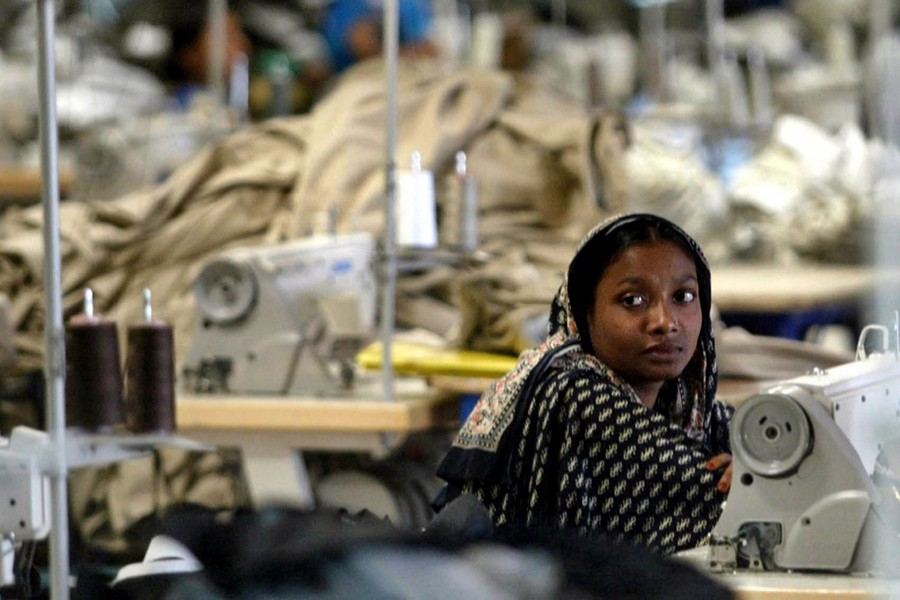
Published :
Updated :

Following the latest unrest among RMG workers for about two months in the two major manufacturing hubs at Ashulia and Gazipur driven by demands for implementing minimum wage and other job-related benefits, the agreement reached between the factory owners and protesting workers should defuse tension. The agreement came at a tripartite meeting held at the labour ministry on Tuesday attended by four advisers of the interim government, labour union representatives and leaders of Bangladesh Garment Manufacturers and Exporters Association (BGMEA). Factory owners and labour leaders have issued a joint statement agreeing to implement immediately all the 18 points of the workers' demands.
The eagerness of both parties-the owners and the workers-to resolve the ongoing turmoil in the country's crucial export sector, as indicated in their joint statement, reflects sound judgment. Some of the workers' demands, particularly the issue of minimum wage, are not new. This issue had arisen several times in the past without any definitive resolution, leading to occasional violence, including arson attacks on factories. As a result, production was halted, and export orders remained either unfulfilled or redirected to other countries. Over the past month or so, there have been repeated acts of violence and vandalism, forcing many factories to shut down their operations. In this context, the tripartite meeting is a significant step towards restoring peace in the RMG sector. Several of the demands are to be implemented immediately, while others have been scheduled for implementation within a short time.
In the tripartite meeting, the factory owners agreed that the minimum wage would be implemented in all factories by next month (October) and that factories would clear all outstanding dues by October 10. They also agreed that employment in the factories would be nondiscriminatory based on merit and skill, and according to the types of work. As per the joint statement, workers cannot be retrenched unfairly in violation of labour laws. Among the other demands agreed upon, extension of maternity leave for female workers, setting up of day-care facilities in factory complexes, raising attendance bonus and tiffin allowance etc clear the way for improving workplace environment. In response to workers' demands for rationing, the government has agreed to temporarily provide essential commodities at affordable prices through the TCB in labour-intensive areas. Additionally, sale of rice and flour through the food department will be expanded. It has also been decided that a committee led by an additional secretary of the labour ministry with three representatives each from owners and workers will scrutinise the capability of the industry regarding wage review within the next six months. Accordingly, it will recommend measures regarding the demand for 10 per cent annual increment, considering the current inflation and labour law by November this year.
The outcomes of the tripartite meeting and the joint statement no doubt represent a significant breakthrough in addressing the long-standing demands of RMG workers. At this critical juncture, it is essential for all stakeholders in the RMG sector to put in their best to preserve peace in the national interest.


 For all latest news, follow The Financial Express Google News channel.
For all latest news, follow The Financial Express Google News channel.